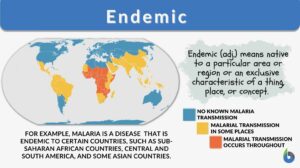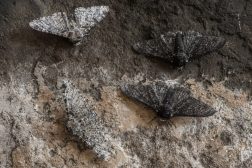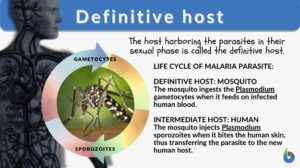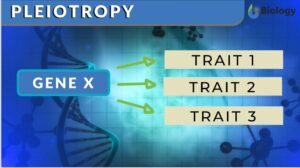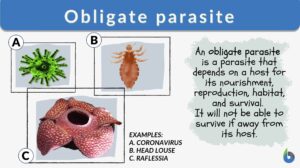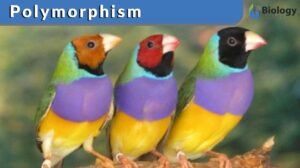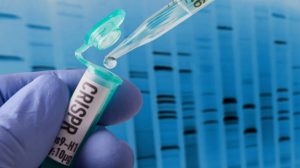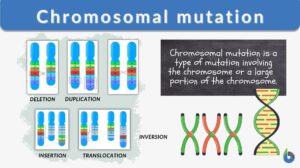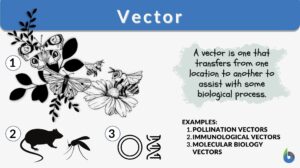Search Results for: malaria
Gastric algid malaria
Gastric algid malaria See: algid malaria. Induced malaria, malaria acquired by artificial means, e.g., via blood... Read More
Susceptible
Resistance, vulnerability, sensitivity, tolerance, and susceptibility are some highly important terminologies across the... Read More
Incubation period
Incubation Period Definition The incubation period is the time duration between exposure to the pathogen and the appearance... Read More
Examples of Natural Selection
Reviewed by: Mary Anne Clark, Ph.D.Darwin's Finches Darwin's finches are an excellent example of the way in... Read More
Parasitism
Organisms depend on different sources of food to survive. Larger organisms like plants make their own food (autotrophs) and... Read More
Prodromal period
There are five stages (or phases) of a disease. (Hattis, 2020). These stages are (1) Incubation period, (2) Prodromal... Read More
Definitive host
Different Biological Relationships The biological world is interconnected whether we notice it or not. All the life forms... Read More
A Look Into Natural Selection and its Mechanisms
Charles Darwin is credited with outlining the fundamentals of evolution. He was a smart and eager pupil and protégé, and... Read More
Unicellular
Unicellular organisms are organisms consisting of one cell only that performs all vital functions including metabolism,... Read More
Tertian fever
tertian fever --> vivax malaria (Science: disease, microbiology) A type of malaria caused by the protozoan plasmodium... Read More
Overdominance
Definition noun (genetics) A type of dominance characterized by a phenotype that is more pronounced in a heterozygote... Read More
Pleiotropy
Pleiotropy Definition When one single gene starts affecting multiple traits of living organisms, this phenomenon is known... Read More
Obligate parasite
Parasitism is a form of symbiosis that occurs between a parasite and its host. The parasite is the organism that generally... Read More
Polymorphism
Polymorphism Definition The occurrence of two or more different forms or morphs in the population of a species is referred... Read More
Sporozoite
Definition noun, plural: sporozoites A minute, elongated cell that arise from the repeated division of the oocyst during... Read More
Apicomplexa
Definition noun A phylum comprised of protozoans characterized by having a special organelle called an apical complex, and... Read More
Deoxyribonucleic acid
Deoxyribonucleic Acid (DNA) Definition A nucleic acid refers to any of the group of complex compounds made up of linear... Read More
Parasite Rex : Inside the Bizarre World of Nature’s Most Dangerous Creatures
Parasite Rex : Inside the Bizarre World of Nature's Most Dangerous Creatures ... Read More
Anthropophilia
Definition noun (parasitology) The preference of a parasite for human than other animals as host Supplement In parasitology,... Read More
Arthropodology
Definition noun A biological discipline that studies arthropods Supplement Arthropodology is a biological discipline that... Read More
Endoparasite
Definition noun, plural: endoparasites (parasitology) A parasite that lives within the body of the... Read More
Endoparasitism
Definition noun (parasitology) A form of parasitism involving endoparasite Supplement Parasitism is one of the many forms of... Read More
Erythrocyte
Erythrocyte Definition Erythrocytes (red blood cells or RBCs) are the myeloid series of specialized cells that play an... Read More
Genetic Engineering Advantages & Disadvantages
Through genetic engineering, scientists are able to move desirable genes from one plant or animal to another or... Read More
CRISPR DIY – biohacking genes at home
Have you ever thought of changing yourself for the better -- genetically-speaking? Lately, CRISPR company has been selling a... Read More
Chromosomal mutation
Every living thing is made up of DNA. Our DNA is what makes us unique and different in the world. Our DNA is made up of... Read More
Melanoderma
melanoderma 1. An abnormal darkening of the skin by deposition of excess melanin. 2. Hyperpigmentation of the skin by... Read More
Exflagellation
Exflagellation The extrusion of rapidly waving flagellum-like microgametes from microgametocytes; in the case of human... Read More
Reproduction
Reproduction Definition Reproduction is a biological phenomenon of producing offspring/s. i.e. more of its kind. Depending... Read More



